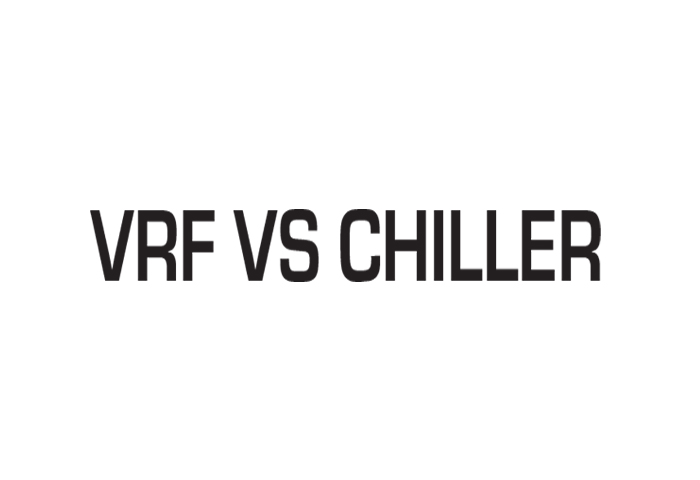Is The VRF Better Than Chiller
1. Cooling Capacity: Chiller systems often have larger cooling capacity and are better suited for large-scale applications such as commercial buildings, industrial facilities, or big residential complexes. This is because chiller systems use evaporative cooling rather than condensation cooling. VRF systems are often better suited for applications that are on the modest to medium-sized scale.
2. Zoning and Individual Control: VRF systems are particularly effective when it comes to giving capabilities for zoning and individual control. A variable refrigerant flow (VRF) system enables precise temperature regulation throughout a building by providing individual indoor units that may be individually regulated. However, individual control and zoning options are more restricted with chiller systems, which may supply chilling to numerous zones simultaneously.
3. Energy Efficiency: While both VRF and chiller systems have the potential to be energy-efficient, the capacity of VRF systems to adjust the refrigerant flow and match the cooling or heating demand of each zone makes them generally considered to be more energy-efficient than chiller systems. When compared to chiller systems that run at a constant capacity, this may lead to a reduction in the amount of energy that is used.
4. Installation and Space Requirements: In general, VRF systems have less stringent installation requirements as compared to chiller systems. This is because VRF systems do not need large pipe networks for the delivery of chilled water. VRF systems may be made to be more cost-effective and simpler to install as a result of this, particularly in retrofit projects. Chillers, pumps, and extensive piping are all necessary components of the more complicated infrastructure that is required for chiller systems.
5. Maintenance and Serviceability Regular maintenance is required for each of these systems, although the particular maintenance needs may differ depending on the system. Because chiller systems are comprised of more parts, it is possible that they may need more regular maintenance. This includes ensuring that the water's chemistry is stable and checking the pumps and valves. Maintenance of the outdoor and interior units is required for VRF systems. This maintenance includes cleaning the filters and monitoring the refrigerant levels.
6. variables Affecting Cost The cost of VRF systems and chiller systems might vary based on a number of variables, including the size of the application, the number of zones, and the particular needs. In general, VRF systems might be more cost-effective for smaller applications, but chiller systems are better suited for bigger applications that need centralized cooling and are more appropriate for larger applications.
To establish whether heating, ventilation, and air-conditioning (HVAC) system is the optimal choice for your project, it is essential to first evaluate the project's unique requirements and limits and then consult with industry experts. In order to assist you in making an educated selection, they are able to carry out extensive load calculations, assess energy efficiency, and take into consideration a variety of aspects like your budget, the availability of space, and the functionality you require.










